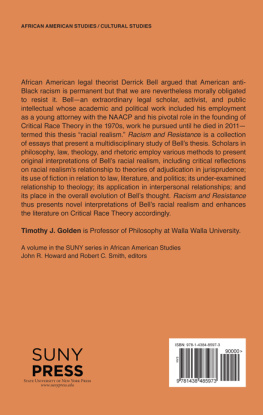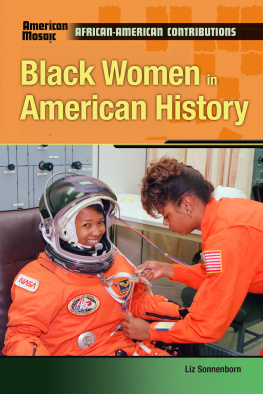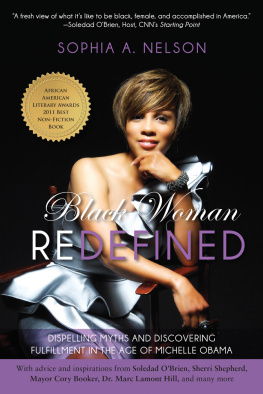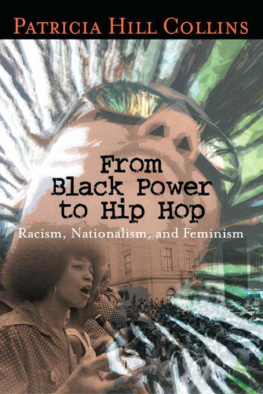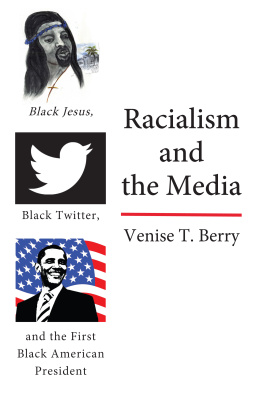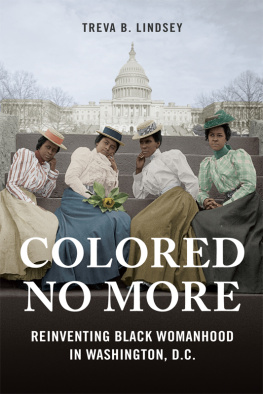Contents
Guide
Pagebreaks of the print version
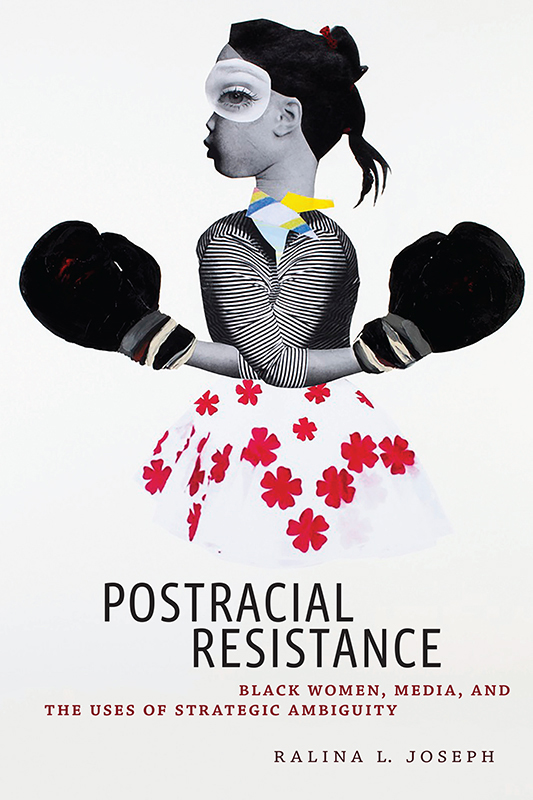
POSTRACIAL RESISTANCE
CRITICAL CULTURAL COMMUNICATION
General Editors: Jonathan Gray, Aswin Punathambekar, Nina Huntemann
Founding Editors: Sarah Banet-Weiser and Kent A. Ono
Dangerous Curves: Latina Bodies in the Media
Isabel Molina-Guzmn
The Net Effect: Romanticism, Capitalism, and the Internet
Thomas Streeter
Our Biometric Future: Facial Recognition Technology and the Culture of Surveillance
Kelly A. Gates
Critical Rhetorics of Race
Edited by Michael G. Lacy and Kent A. Ono
Circuits of Visibility: Gender and Transnational Media Cultures
Edited by Radha S. Hegde
Commodity Activism: Cultural Resistance in Neoliberal Times
Edited by Roopali Mukherjee and Sarah Banet-Weiser
Arabs and Muslims in the Media: Race and Representation after 9/11
Evelyn Alsultany
Visualizing Atrocity: Arendt, Evil, and the Optics of Thoughtlessness
Valerie Hartouni
The Makeover: Reality Television and Reflexive Audiences
Katherine Sender
Authentic: The Politics of Ambivalence in a Brand Culture
Sarah Banet-Weiser
Technomobility in China: Young Migrant Women and Mobile Phones
Cara Wallis
Love and Money: Queers, Class, and Cultural Production
Lisa Henderson
Cached: Decoding the Internet in Global Popular Culture
Stephanie Ricker Schulte
Black Television Travels: African American Media around the Globe
Timothy Havens
Citizenship Excess: Latino/as, Media, and the Nation
Hector Amaya
Feeling Mediated: A History of Media Technology and Emotion in America
Brenton J. Malin
Making Media Work: Cultures of Management in the Entertainment Industries
Edited by Derek Johnson, Derek Kompare, and Avi Santo
The Post-Racial Mystique: Media and Race in the Twenty-First Century
Catherine R. Squires
Sounds of Belonging: U.S. Spanish-language Radio and Public Advocacy
Dolores Ins Casillas
Orienting Hollywood: A Century of Film Culture between Los Angeles and Bombay
Nitin Govil
Asian American Media Activism: Fighting for Cultural Citizenship
Lori Kido Lopez
Struggling For Ordinary: Media and Transgender Belonging in Everyday Life
Andre Cavalcante
Wife, Inc.: The Business of Marriage in Twenty-First Century America
Suzanne Leonard
Dot-Com Design: The Rise of a Useable, Social, Commercial Web
Megan Sapnar Ankerson
Postracial Resistance: Black Women, Media, and the Uses of Strategic Ambiguity
Ralina L. Joseph
Postracial Resistance
Black Women, Media, and the Uses of Strategic Ambiguity
Ralina L. Joseph

NEW YORK UNIVERSITY PRESS
New York
NEW YORK UNIVERSITY PRESS
New York
www.nyupress.org
2018 by New York University
All rights reserved
References to Internet websites (URLs) were accurate at the time of writing. Neither the author nor New York University Press is responsible for URLs that may have expired or changed since the manuscript was prepared.
Library of Congress Cataloging-in-Publication Data
Names: Joseph, Ralina L. (Ralina Landwehr), 1974 author.
Title: Postracial resistance : Black women, media, and the uses of strategic ambiguity / Ralina L. Joseph.
Description: New York : New York University Press, [2018] | Series: Critical cultural communication | Includes bibliographical references and index.
Identifiers: LCCN 2017060990 | ISBN 9781479862825 (cl : alk. paper) | ISBN 9781479886371 (pb : alk. paper)
Subjects: LCSH : African Americans and mass media. | Mass media and women. | African American womenSocial conditions.
Classification: LCC P 94.5. A 37 J 67 2018 | DDC 305.48/896073dc23
LC record available at https://lccn.loc.gov/2017060990
New York University Press books are printed on acid-free paper, and their binding materials are chosen for strength and durability. We strive to use environmentally responsible suppliers and materials to the greatest extent possible in publishing our books.
Manufactured in the United States of America
10 9 8 7 6 5 4 3 2 1
Also available as an ebook
Forever, for always: JJ, NV, TJ
CONTENTS
PREFACE
In their very first conversation, a college students new roommate shifts the conversation from pleasantries about home towns and class schedules to hair, first complementing her roommates cool style, and then moving closer, saying, I just want to see what it feels like. Just before her roommates hand grazes her locs, the student gently catches and removes it. She feels her stomach, her cheeks, and her hands constrict with indignation but she doesnt slap her hand away; she doesnt yell; she doesnt lecture. She takes a breath, permits a tired smile, and says, with a measured tone, please dont touch my hair. Later she will journal about this experience, describe it in her request letter to transfer into a single, and share it with faculty, students, staff, and community members at her campuss #BlackLivesMatter protest.
The morning after another widely-televised murder of a Black man goes viral, the woman heads back to her job as a television writer. She takes a deep breath at the threshold of the writers room, pausing to re-balance her coffee, laptop, and script bursting with a rainbow of sticky notes. She hears raucous laughter and feels relieved at the promised distraction, but as soon as she walks in the conversation stops and her colleagues eyes dart to their phone screens. Busying herself with setting up her space, and giving herself a pep talk to pitch her first idea, she smiles and enthuses, you all ready to start? Later she will channel her emotions from this moment into her own spec script.
On the first day of classes, a lecture hall full of students wanting add codes for an oversubscribed course parade past the woman shuffling through papers and outfitted in a tweed blazer and slacks. They line up behind a bearded man in bike commuter attire, sitting on stage, legs dangling. The students address the man reverently as professor, and ask him for the honor of joining the class. The woman assesses the students in line in front of her flattered and smiling graduate student teaching assistant. She takes the podium and warmly addresses the crowd, welcome tocommunication 389! I am your professor, and I will answer all questions about add codes after class. Later she will narrate this experience for her students in her lecture on stereotyping.
In spaces of privilege such as a college dormitory, a writers room, or a lecture hall, twenty-first century racism and sexism rarely register as blatant or bald. Instead, gendered and racialized discrimination functions as a frequently ignored, allegedly well-intentioned, often-excused phenomenon. Such moments of racialized sexism are textbook examples of microaggressions, what psychologist Derald Wing Sue describes as brief, everyday exchanges that send denigrating messages to certain individuals because of their group membership.the imbricated connections of race, gender, sexuality, and class that construct intersectional identity. Postracial ideologies hide that matrix, denying that it even exists.
This book developed in part from my own everyday experience of negotiating resistance to microaggressions in a world where racism and sexism continue to be a given for some, and a fantasy for others. It emerged from my life as a professional (and privileged) woman of color. Within a month of being a new assistant professor, I learned a word that I would come to hear virtually every time I was given advice by a well-meaning colleague: strategic. I needed to be strategic. Being strategic meant not simply writing and publishing steadily as I climbed the tenure hill. It meant choosing my battles, meting out my words, and conducting myself in a quieter, less obtrusive, and less radical way. It meant not making people uncomfortable. While my White, male colleagues might have received the same advice, such words registered differently with me. I heard that my research, which pushed on the boundaries of communication scholarship, was dangerous and illegitimate; I learned that I myself, a woman of color faculty member, was dangerous and illegitimate.


